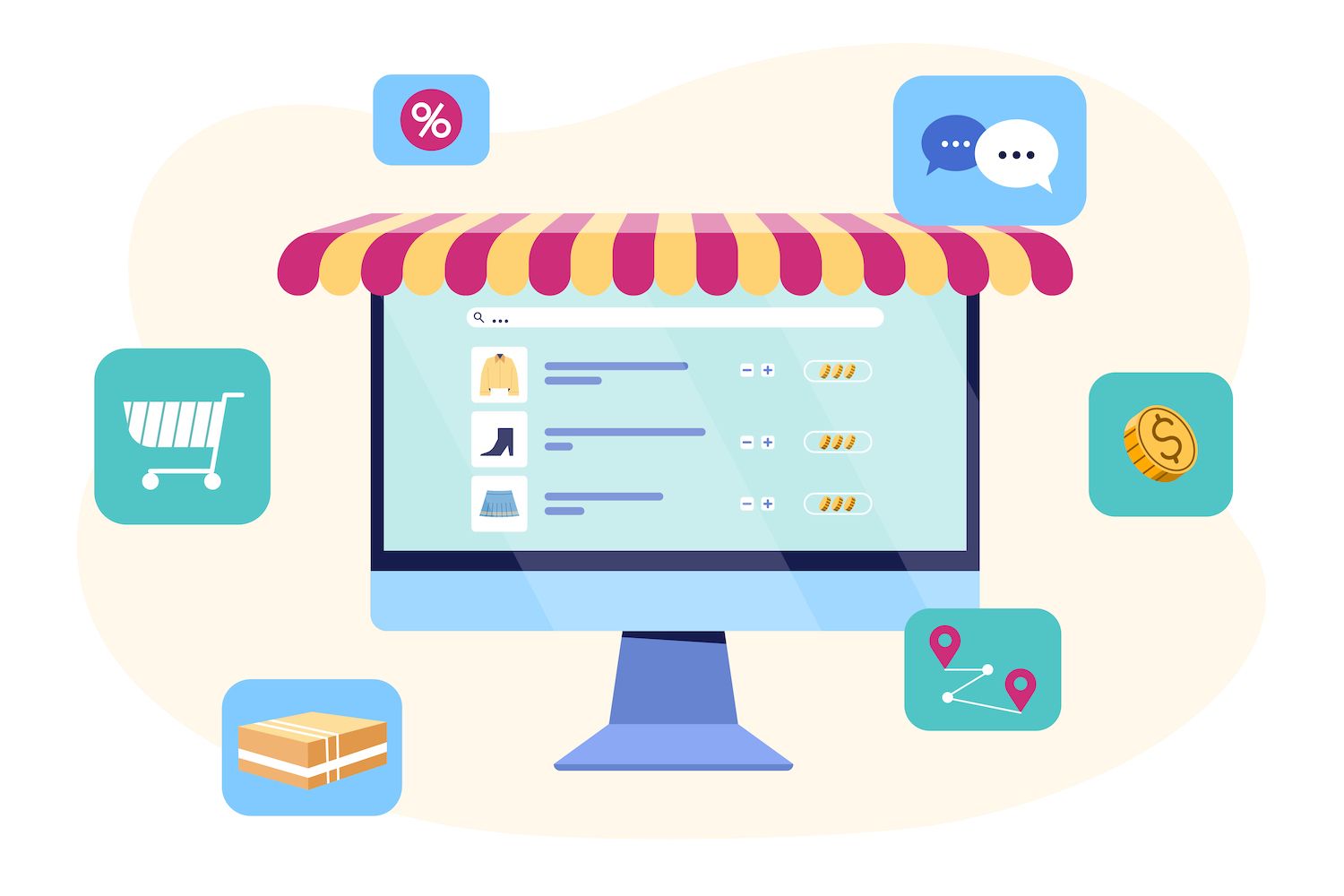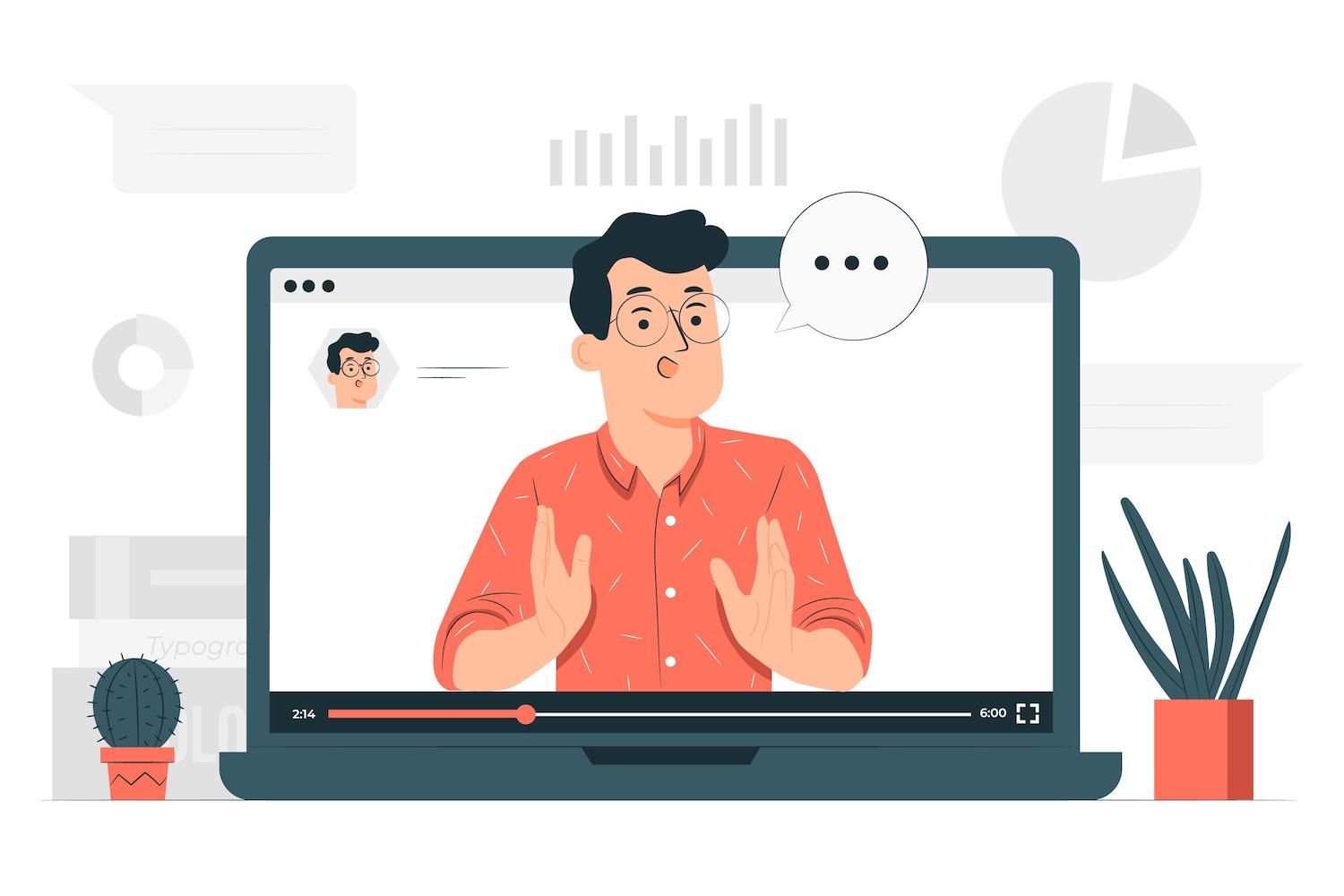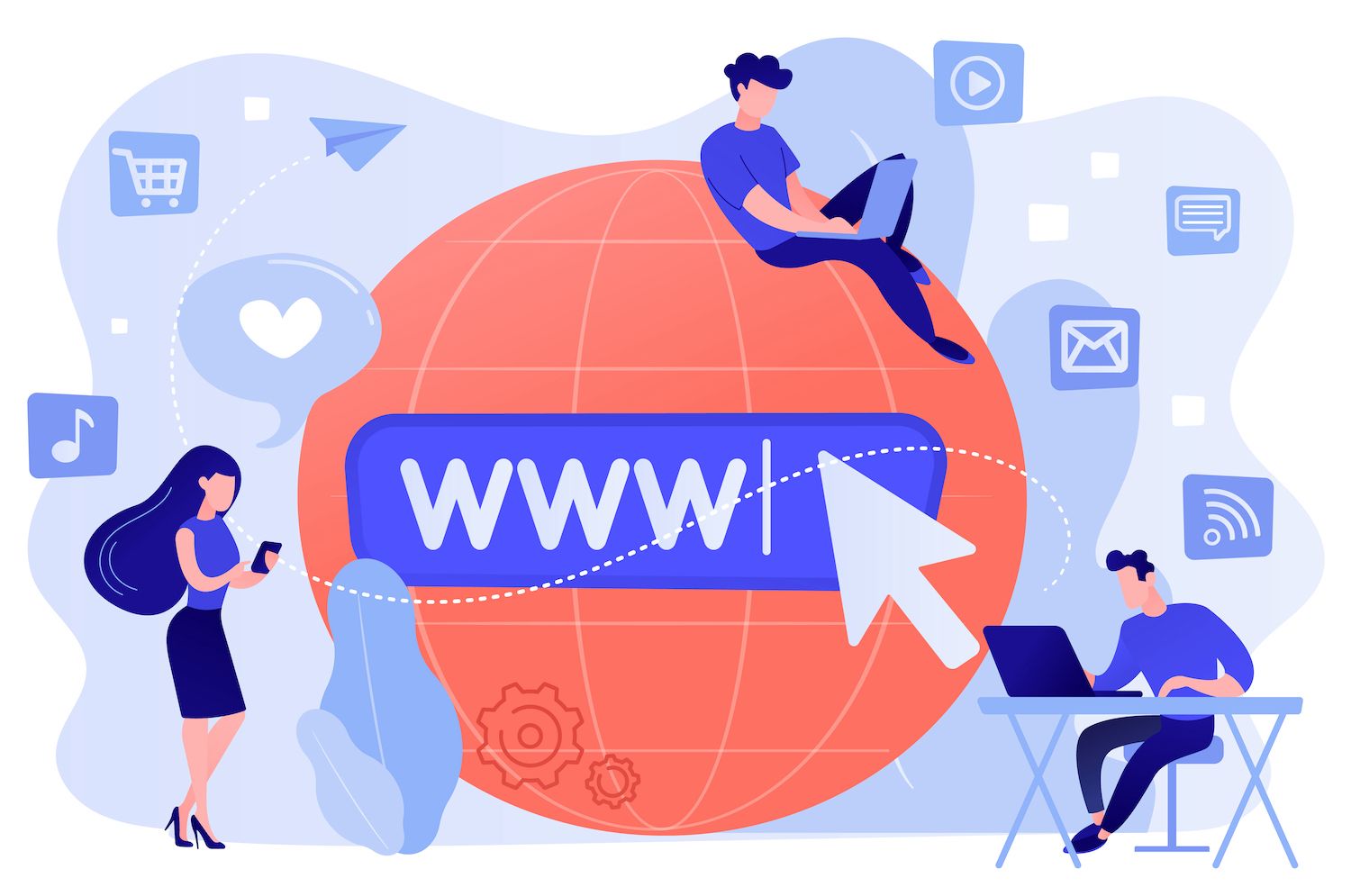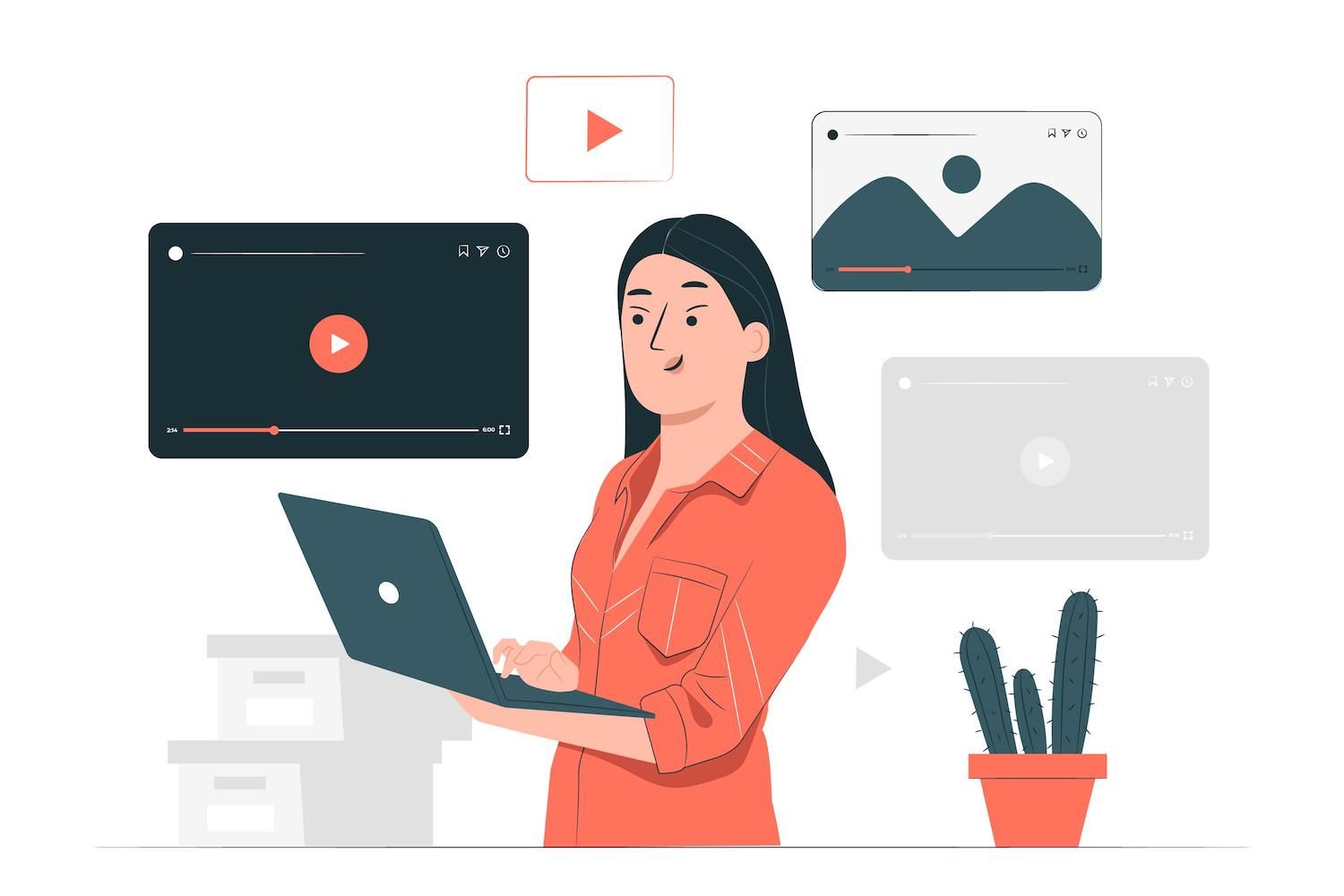The complete A-to-Z checklist for starting an Online Business
You're here! This means you're getting close to making an important life choice. You want to start an online business. This could be an online company, a service-based one, a coaching or course-based business, or something else. The most important problem you'll likely face is: what should I do? For you to get started, we've created an entire checklist to help you start an online business.
You might be tired working for an employer and want to create your own timetable, or are done not having any control or influence over your salary. You're looking forward to taking the chance to see what you can build based on a business or product idea. It could be all of the above.
Whatever has led you to think about setting up an online or ecommerce business, it's going need some time, and you'll need direction.
It's a good thing you don't need a school diploma to become an entrepreneur who is successful. Anyone who is determined to learn, work, take risks, and follow through is able to make it happen.
But, there is a lot to do, and that's why having an online business checklist will prove to be extremely helpful. is constantly working to open up commerce, providing opportunities for all to develop their own ideas, regardless of where they're or who they are or what they're able to do with their resources. Making sure that people can succeed in business is our goal!
Table of contents
- Questions frequently asked by new business owners
- What does it cost to start an online company?
- How long will it take to get started?
- How long does it take to launch an ecommerce site?
- Can I start an e-commerce company with zero experience?
- How can I begin an online business on an extremely tight budget?
- Do you think it's a good option to launch an e-commerce or an online company?
- What should I know to know about beginning an online or ecommerce company?
- The most comprehensive checklist for online businesses
- Product development
- Government and legal documents
- Foundational business assets
- Website
- Establish business systems and operations
- Marketing
- Grab your checklist and get started working through the checklist today
Questions frequently asked by new business owners
We'll get to the checklist for setting up an online company in a bit before that, however, we'll first address some questions about beginning an online company.

How much does it take to establish an online company?
The cost of starting an online business is considerably less than a traditional company with a shopfront or production facility. But, there's many costs that you'll need to take in prior to starting.
In the beginning, you need to create and then launch your site. It is possible to save money by doing some of it yourself through the creation of your own web content and building your ecommerce company on a platform that is free like . You can also reduce time and hire an agency or freelancer to handle it.
Next, you'll have some legal costs, such as permits and licenses for businesses or even creating legal declarations of liability based on the products you offer. If you lease equipment, you might want a rental agreement written by a lawyer.
The other business cost you incur is the accounting and tax preparation that includes paying sales tax. And you'll pay shipping costs for physical product, which can also include return shipping.
Therefore, even when you have an online company, there are going to be initial costs.
In the event that you're launching an ecommerce business that sells physical goods, you'll be faced with the additional costs of developing products, manufacturing as well as inventory.
How long does it take to start?
For online businesses that don't sell physical products, such as coaching businesses or service-based company like copywriting or web design, you'll be able to get started in a matter of months.
If you can devote several hours a day on your new venture, knocking off the items from your online business checklist, you can be open earlier than you imagine.
Making use of physical items can add a few weeks, or perhaps a few months, to this procedure. If you're making or modifying your own items in-house, your only limit is how long it takes you to get the raw materials and finish your project. Working with manufacturers or other third-party suppliers adds more processing and shipping times on top of the time required to complete the project.
Like everything else, if your new business is not a part-time venture that you are working on, the amount of time you need spend on development will limit how quickly you can launch.

How long will it take for launching an e-commerce site?
If a business is e-commerce and has products, packaging, and associated requirements, start-up times can be extended. The setting up of an ecommerce site is one of the last steps to opening the doors to the business. Why? You need your products and processes determined first.
What kind of shipping option will you require? Which is your ideal customer like to be paid?
When you're done with the process of development, you'll be able to plan and sketch out the web pages you'll require and the features that it should have.
Making and organizing all your website's content including product images as well as descriptions, FAQs etc. It can take some time. But having these things in place before hiring an agency or freelancer could speed up the process faster.
A skilled web designer could make a simple eCommerce site within a couple of days. But, it is best to expect the process to last several weeks or so for a typical site. If you're creating something more complex or do not already have all your information and functional requirements arranged prior to the start of building your online store can take several months or more.
Do I have the ability to start an online business without prior previous experience?
Your learning curve will be steeper however, as long as you're determined, it's absolutely possible!
If you have no experience you should consider investing some extra money up front to help you learn about how to sell on the internet.
You don't need an official degree to be successful, but enrolling in online classes can shorten your path to success. It's sometimes worth the modest investment to study from a professional or two. Why? Think about a few jobs you'll be required to complete:
- Understanding marketing
- Writing a business plan
- How to sell
- Providing customer service
- Writing web content
- Leads to acquire
- Identifying manufacturing and inventory management
- The ability to develop a positive mindset is essential for success.
Can I start an online company on a tight budget?
You can certainly do it, however you'll likely trade out-of-pocket expenses to speed. If you're a good teacher and are able to teach yourself something new and possess an interest in doing so then you'll be able to learn the basic principles of website design as well as copywriting, design business structure, and marketing in your spare time.
Hiring experts to help to speed up the process, but requires financial resources upfront.
The best strategy is to work on your ecommerce or online business during the hours you are not working, or in the form of a side-business, and then build it just a bit at a time. It will be worth the time you spend educating yourself as it will result in more educated and confident, flexible, and competent small business entrepreneurs.
Keep your eyes on the ball, be consistent and persevering -- and you'll get back on track. Use our checklist for what you need to know prior to starting your online company.
Is it a good idea to start an ecommerce or online business?
The process of starting an online business requires dedication. There isn't a guarantee of instant success. But if you keep working on it, and never abandon your efforts, your new business will succeed.
Participate in a few seminars. Attend an expo or two, even if you're not in the field. Learn about how companies present themselves and what they are doing. Find out the right language. Get to know people. Learn from your current job with a company that is not your ownThe decisions that are made behind the scenes and the risk, the uncertainty, and the reason for why entrepreneurs do what they are doing. Which lessons could you take to your own ideas?
It's not a guarantee that you will succeed however it's a good idea to learn as much as you can and follow your goals a bit each day.
What are the most important things I should be aware of when starting an online or ecommerce business?
If you've have made it to this point congratulations!
You've already shown some commitment to the idea of your business as well as your eagerness to study all you can about becoming an effective business leader.
Let's begin the list. This comprehensive checklist for starting an online business focuses on the fundamentals.

The complete online business checklist
Learn more about each of the items in the checklist listed below. If you're creating an enterprise plan, this checklist will help you when writing the document as it'll get you thinking about the most important elements.
The checklist can be divided into six sections:
- Product development
- Legal and government
- Assets of business foundation
- Website
- Systems for business and operations
- Marketing
The checklist isn't necessarily ordered in any particular order, and you can work on multiple items at the same time, but make sure your business idea is firmly established before investing too much money into marketing, business plans or other items. For that reason, we'll begin with 'Product.'
Product development
It's all about working out the product you're offering and the best way to make it available to your clients, whether that's a physical product, online download, service or something else!
Know what you're selling
Do you sell products that are food-related? Hand-crafted jewelry? Clothing? Dietary supplements? A custom art piece? The answer is obvious. However, it's impossible to start a business without knowing the details of the product you're selling.
If you're selling services then what exactly is it? Could you explain it in a concise manner? You could make money from video production, dog-walking, event planning seniors care, graphic design or any of a myriad of other services.
Perhaps you provide online cooking classes, equipment rentals and software licenses. Or, you could offer printable workbooks, or tickets to shows. It's all up to you!
Ultimately, what you offer must be wanted or needed by customers. That's a great incentive to get started by completing the first step in the section on marketing of this list -identify and determine and discover your target market.
To do:Describe the products or services you're selling. Pitch these ideas to members of your target audience and receive feedback on your offering before investing excessively in manufacturing or marketing.
Check if your ideas for products are in demand
The broad product categories may be tough to crack for an e-commerce store that is new or a the start of a new business online. If you're trying to stand out to prospective customers, you should fill a need that isn't but being fulfilled by other companies. The category of "health supplements" encompasses a variety of products. What about health supplements for parents working as freelancers?
Now, you have a much narrower, more specific target market for the products you sell. This matters because, when you get into marketing online, you will be based on your niche. It's much easier to get quality traffic to a niche product or service compared to a broad one.
When you've got your product concept, conduct some investigation to find out if there's a need for the product. Take a look at your competitors. Are they flooded or do they lack some angle or a service that you could offer? Have you recently seen a competitor sell or close up? Why? Does that mean the market for this product is not strong or is it the perfect chance?
And, again, present your ideas to people in your target public to gauge enthusiasm. You can conduct in-person interviews and conduct surveys using Facebook or email accounts and work with firms who will conduct research for you.
To do: Describe your niche and establish a need for it.
Develop inventory and/or fulfillment plans
Before you start taking orders, you need to have inventory on hand or an organized plan to fulfill the orders. If you're selling something physical it means placing orders as well as sorting it out and keeping sufficient physical items to begin without the risk of having too much unsold inventory taking up storage space in your garage or storage.
If you're sourcing and refining physical goods, the process may take longer than you'd expect. Begin early by making the first versions of the physical product and carefully inspect the detail and quality provided by each vendor. Keep refining your source until you've found the right balance of cost, quality and effectiveness you're searching for.

In general, lower purchases from suppliers mean less margins. But, if you're just getting started, you can decide to use this method until you're certain which offerings will be successful and which ones don't inspire customers in the way you expected. If you are certain that the product has a chance to be a success it is possible to place larger orders at a lower cost per unit.
If you're selling service-based, or non-tangible goods however, you may still determine your "inventory" in relation to any necessary raw materials as well as the fulfillment capabilities of your business. If you're selling a personal consultation, for example an inventory would be the number of available hours that you can be working during the specified time frame. Remember to add the time needed for management of your business as well as marketing and any other unplanned tasks!

Government and legal documents
Note that this article applies to companies based within the U.S. If you're in a different nation take some time to research the requirements.
Every state will have different specifications, however in general, you'll need:
- A state-issued business license
- Secretary of State corporate registration
- Federal tax identification (EIN)
- The type of insurance you choose will depend on the product and service type
- Legal disclaimers
- Legal contracts for client-based or membership businesses
- Rental contracts for rental companies
Some of these will be only one-time expenses. Other documents must be renewed each year. In order to obtain the majority of these documents will require information including your name as a business in the following section.
It is necessary to have an EIN in order to establish a business bank account and you'll definitely want to do, as it will make the management of your accounting and taxes far simpler to manage. Get your EIN here.
to do:Research all legal documents that you'll require based on your specific business and jurisdiction. Include each document on the checklist, and then get it all lined up!
Assets of the business foundation
It is also not the complete listing. Each company will have specific assets it needs to have. Consider the logistics of running the online business you have in mind Add items to this online business checklist as needed.
Establish a brand name
Don't do this too quickly. If you are considering registering your company with the Secretary of State (in the United States), one of the tasks is to ensure that your choice hasn't been taken. Name your products and business can also be a decision for marketing.
The most effective method is to think of a large list of possible ideas, then narrow it down. Perhaps run your top choices with a couple of your friends or business contacts. But don't choose one prior to ensuring that there's no other name that's already been taken.
Search online for your favorite ideas and see what comes up. Search domain names to determine the if there is a comparable one readily available. Is there a website already that is similar to yours? Your name needs to be distinctive and unique. Find out more about naming your company.
Design a brand identity, and logo
When you've selected and registered your business name You can now begin to brand your products. The logo you choose should be of some sort to represent your brand. You'll also pick your brand colors. The option to alter this is available at any time, but it's not always easy, so put some time and effort into it. It's likely that you'll need to hire a professional to design the logo for you and also provide branding input.

Understand your "why"
Whichever product or service it is you'd like to offer through your store online there must be a a personal reason for selling it. There is no reason to only make money. Why? You can earn income from a variety of things. What made you pick this idea or product instead of the other ideas?
Maybe you have an interest in your industry, or pre-existing skills that can be applied. Maybe your current position, a hobby, or previous experience make your more skilled to develop and market your item or service. Maybe you have some real experience in the field. For coaching and industry-authority-based businesses, this is particularly helpful. Perhaps you have a passion for it.
Whatever the case, know why you chose your business concept or the product you'd like to explore. You want to be able to tell the story of your business. You must know what fuels your commitment to this so you can remember that when facing challenges.
To Do: Write out an essay that explains your reasons for pursuing this product or business.
Establish Business Contact Options
There's nothing wrong with using free email services like Yahoo or Gmail However, having an email at your own domain could increase your perceived authority and professionalism. Once you know your business name and the URL for your website, you can create a business email address that will be something like [email protected].
There is a possibility that you should establish a business address in the event that it's not an office in your local area that you can utilize for corporate and business-related correspondence.
Finally, consider a phone number that is specific to your business. This also shows a level of professionalism, and helps to maintain a an appropriate distance between work and private life. Free tools like Google Voice help you get started quickly.
Set up a business bank account
It is essential to have a company bank account. This is an essential requirement. There is no reason to associate your financials for business alongside your personal financials. For opening a bank for business account, you'll need a federal tax ID (EIN) as well as your business license, too. Contact your bank of choice to find out what documents they require.
Website
Since you're launching an online shop, your site will be a key component of your business. The specific steps you'll want to take in this article will differ based on your company and the products that you're selling certain commonalities to most businesses.
Pick a domain
You have already confirmed that your domain name is available. This is now the perfect time to purchase the domain. It is a crucial factor in naming your business, too. Ideally, the .com variant of the domain name should be available for purchase, but there are many other alternatives you can consider such as .org, .co, and .net according to your requirements.

You also want your URL to be simple to read and understand -- if you announce it to someone who is interested in purchasing it and they are able to remember and type it in their browser later.
Purchase Web Hosting
There is a need for the services of a web host to save your site's files and make them available for users to browse on the internet. There's a myriad of factors to consider here such as pricing as well as uptime, security, and scaling.
Pick an e-commerce platform
E-commerce tools provide all the features you require to sell your products on the internet, accept payments, and much more. It is a great choice for beginners and experts alike. It's the ecommerce component of WordPress, a website building tool which powers 43% of all websites.
WordPress is superior to other platforms due to the fact that they're:
- Free to use. Both WordPress and offer all of the core features of their website for no cost. You can also purchase premium add-ons, many stores can get started and operate their businesses at no cost.
- Expandable and flexible. You're not limited! Have as many products and variations as you'd wish to. Offer any kind of item including digital and physical products to subscriptions, bookings as well as training courses. Design a website that fits any product you think of.
- Open-source. Because both WordPress and WordPress.com are open source everyone is able to edit, copy, or modify the code in any way they'd like. It's why there's such an incredibly high level of openness and freedom. Also, it means that there's a lack of limitations and restrictions that are associated from proprietary platforms.
- Simple to work with. These platforms were designed to allow anyone to create stunning, functional websites and that's even without knowledge of coding at all. As an example, the robust blocks editor lets you create pages just by drag and drop elements (blocks) and setting settings.
- Part of a tight-knit community. Its WordPress Community and the WordPress platform is like no other one, featuring meetings and Facebook groups, Slack channels, support forums, and more. The community is full of like-minded individuals who want everyone to find the success they deserve!

Make your site attractive
After that, you'll be able to work on designing the rest of your website. Make sure to stick with the branding choices that you've made in the past, such as the color scheme and logo and ensure your website is coherent. It is possible to use the block editor to design everything from pages and product galleries, to headers and even template templates for your products (if you're employing the blocks theme).

For an ecommerce store there will likely be the homepage, the About page, Contact page. These pages will be paired with the product's category, Cart checkout pages, and Cart. It's also possible to vary based on your business.
Design your own products
You'll need to make your listings for products. By default, lets you create:
- Basic products (Basic items with no options)
- Variable products (Items that come with choices, such as colors and sizes)
- Product downloadable (Products that customers are able to download)
- Virtual goods (Items which aren't physically tangible and aren't downloaded such as a service)

You must provide all of the details about the technical specifications, materials and other information. Also, you should consider the potential customers will be asking and attempt to respond to them within the description.
In addition, you have to help paint a picture of how the features of what you're offering can assist clients in their lives and work or play etc.
Set up a payment gateway
Payment gateways allow you to collect securely payments for your items, then sends the funds to your bank account for business. There are a few considerations to consider, however ultimately the gateway that you select will be based on your business needs.

Create business systems and operation
Maximizing your margins as an enterprise means that you focus on efficiency and setting up systems that are duplicatable which reduces the requirement to keep coming up with fresh solutions for your business model.

Establish the packaging and shipping procedures
There shouldn't be a need to be able to guess at packaging solutions each time a new order arrives. Create a process for finding the different SKUs that you have in stock and how to wrap each item for shipping. This should be a systematic, well-organized process to ensure that you could hire someone or at any time they could come in and take over this responsibility.
Certain products require bubble wrap. Other items can be placed in a polybag. Some combinations will require boxes and receive a free label. These are all things to consider and document prior to selling online.
Choose the right shipping materials
Select your shipping partner and the method you'll be charging the shipping

Find out how to manage inventory and store it.
In the absence of proper management of inventory You'll be faced with a slew of headaches. You can't sell what you don't have, so it's important to have plenty of inventory without having a warehouse full of unsold items.
If you're planning to store and ship items you have in your possession, you'll require an area to keep your items along with any other equipment you'll need to safeguard them and arrange them for quicker fulfillment (bins and tubs and so on. ).
Think through customer service processes
How will questions be handled? What avenues will customers need to use to get in touch? Is there a standardized procedure that you could develop for handling problems of varying the severity?
Set up taxes as well as financial tracking
The majority of jurisdictions require recording and payment of a sort of sales tax or VAT. This can vary based on the origin of the buyer, the shipping destination as well as the location of your physical store inventory, and more. This can become complicated very quickly.
Alongside tax-related issues, as a business owner, you should know your financial position in any moment. In addition, with a variety of expenses, and many tasks to take on there is quite a task to keep track of.

When tax time comes around or any other time of your choosing, simply provide your accountant with this information and let them run with it and from there.
Create return policies
Marketing
The fact that you've put up an ecommerce website doesn't mean people will come across it, let alone buy anything. The majority of marketers, as well being smart business owners will tell you that every business is in the marketing industry. It is your job to sell your goods, and that's marketing. Before you are able to establish your niche by providing your customers the best standard, the most original or most expensiveitems customers must be aware of, comprehend how to use it, and then be compelled to buy.
Marketing is a fundamental aspect of any firm and this is the reason that many of the key concepts of marketing in this section can, and should, be formulated in conjunction with other aspects of this checklist. The people you target and the way in which you want to present your business will affect everything from the name of your business and web presence to the SKUs you choose you develop.
Define and learn about the people you want to reach
Are selling to a specific segment of the population, like children parents, singles or old or other people? Are you selling to another business niche? You might be selling to satisfy interests, like landscape or climbing rocks. You might be selling based on some sort of need.
But even with needs, there are other variables that come into play. All of us need food. All of us need clothing. But which food and clothes that we pick depends depending on individual preference, culture as well as our life experience, where we were educated, our financial capacity, etc.
Your target audience will determine your product in a certain degree, but the product you offer determines how your customers will perceive it. It is important to consider both simultaneously.
When you've established the potential clients you're targeting, your marketing should reflect that and call the audience in. For instance, if you're selling landscaping services to retirees, your marketing should clearly state that the service is meant for retirees, not any other person. If you're selling landscaping services to retirement community, then that's an entirely different target market.
Determine how you will reach that audience
The next question is how do you connect with your market? Are you going to primarily rely on the internet for marketing? Or will you make use of in-person or printed marketing too? The audience you want to reach will decide the best option to a extent.
In the earlier example, a lot of retirement-age people aren't on TikTok, so it wouldn't make much sense for that firm to allocate all the advertising dollars to this platform. However, a makeup company selling for students in college or teens might want to strongly look into advertising on TikTok or other social media platforms.
What is the target market? How do they shop? What are their preferred places to look for solutions to the problems your product solves? How can you attract their attention?

Choose an initial marketing budget
Every business online must choose the initial costs for marketing based on their unique situation. You must consider:
- You have the funds available for investing upfront
- Costs associated with various marketing channels
- What you will do yourself and the things you'll outsource
- Your product's worth
The product you sell for $500 deserves a larger marketing budget than one selling at $5. It's at least the beginning. If the item becomes a big seller, you can increase the advertising budget for it later.
It takes a lot more budget to produce a television commercial than it does to create an email marketing campaign. But you have to possess an email list that you can mail to, and that will require additional marketing. Direct mail needs a list, too.
For in-person events, there are fees charged for booths. Pay-per-click (PPC) is a method of marketing online that charges per click.
You must decide on the amount you're willing invest initially- to attract, engage and then convert your initial set of customers. As your business grows the strategies you employ and your investments will change.
Begin your digital marketing
- Marketing displays
Each comes with the need for learning and an investment in time and cash. There is no way to do all of these at once.
Search engine optimization is among the lowest cost if you do it yourself However, it requires lots of effort to learn how to research, implement, and study. However, if you're able to spare the time, start making blog posts, eBooks, guides, checklists informational graphics, as well as other digital marketing assets. Create them around the things the people who read your content are looking for.
Utilize them to convert your site visitors to customers and leads. Invite them to join your email list with an opt-in page. That lets you send emails marketing messages that, again, you can choose to build by yourself.
Other forms of marketing can cost more, but allow you to more quickly and efficiently target your ideal customers. This allows you to build up your business more quickly.
Consider in-person marketing strategies
The biggest obstacle of digital marketing is all the others online marketing that is available. The world of the internet is full of distractions. The best approach is to get out there and meet people in person.

Get a booth at an event of the industry. Try getting a speaking slot and engage your audience from an authority position. Run your own event for your intended audience, similar like financial advisors. Participate in networking occasions. Be a member of your local chamber of commerce.
What's the benefit of executing things like this goes far beyond the immediate sale. It is a great way to learn from each interactions. Learn better methods to present yourself and your product.
Think about printed marketing strategies
Print marketing can include direct mail. It could include letters, postcards, as well as flyers. Also, you can write books, small guides as well as brochures.
You can use these to drive traffic to your online store by including your website or a landing page URL on the printed products. The landing page that is specifically designed works well because you can track how many people are using it and also know what percentage of the technique is working.
Get your checklist out and begin making progress today.
The process of starting an online store requires a lot of steps, but they're well enough! And is here to help, with all the tools that you require to create and operate an online store.
Are you ready? Begin today.
